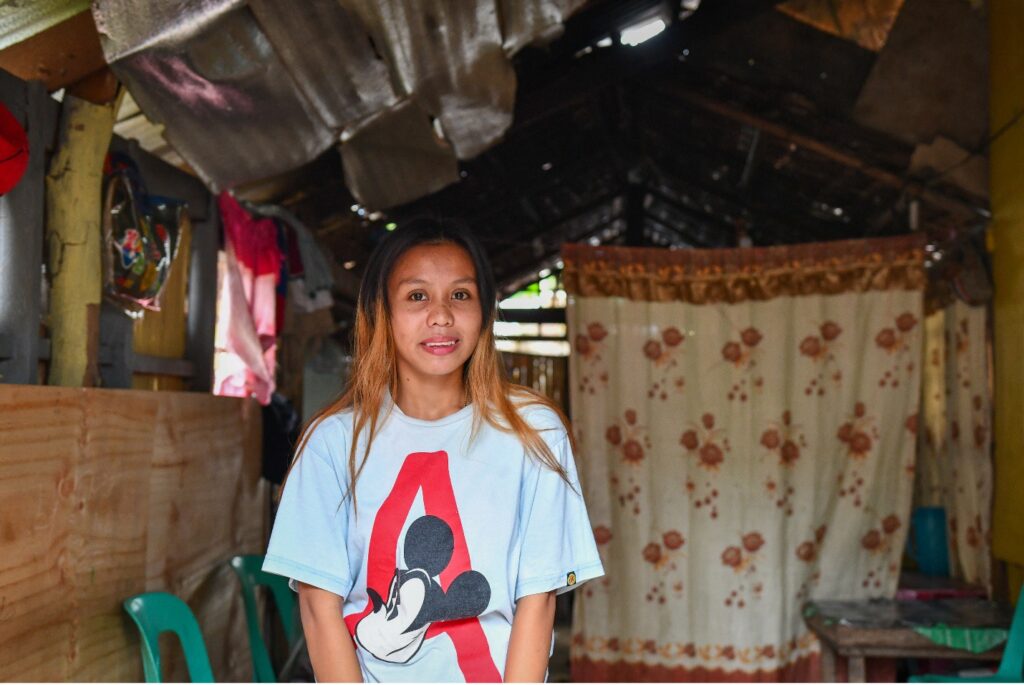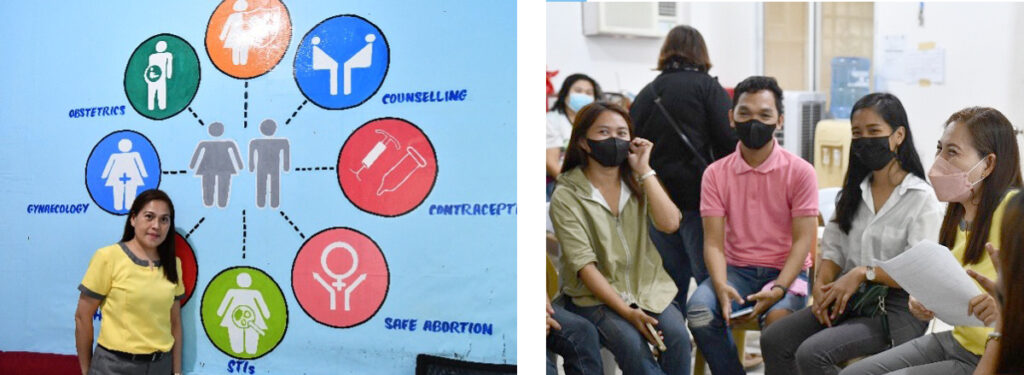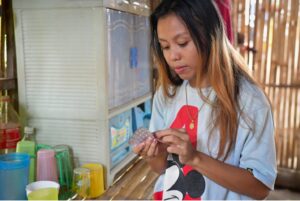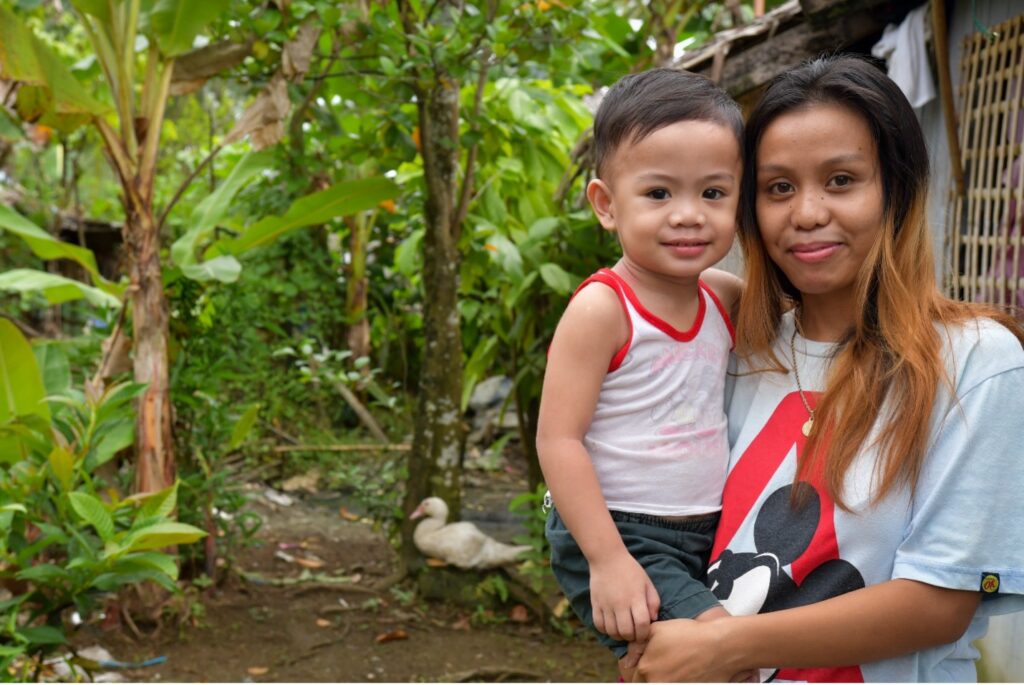
When we met 19-year-old Jovie Erillia, mother to two-year-old Jhon Kyle, at her home in Santa Margarita in Samar, Philippines, she was living with her partner and his family. She had just turned 16 when she realized she was pregnant, the only one among her friends to face a pregnancy while still in school. “Shocked” is the word she uses for herself and her family when they learned of the pregnancy. Overwhelmed, Jovie left school and moved into her partner’s home. She saw her dreams of becoming a teacher come to a screeching halt. She felt no hope for her future.

A local community health worker linked Jovie with the rural health unit (RHU) in Santa Margarita, where she met Jhpiego-trained midwife Evelyn Tangaran. Evelyn runs the adolescent clinic at the RHU, which Jhpiego helped to set up. The counseling Evelyn provided around safe pregnancy and delivery helped put Jovie’s mind at ease and gave her hope that her pregnancy would not mean an end to her dreams.
“The trainings I received from Jhpiego taught me to be more sensitive, more effective, and tailor my services to be adolescent-friendly. It has greatly improved my communication skills with adolescents as well,” says the midwife, explaining how she was able to get through to Jovie.

Teenage pregnancy is a common phenomenon throughout the globe, including in the Philippines. The World Health Organization estimates that approximately 21 million girls aged 15–19 years in developing regions become pregnant each year, and about 12 million of them give birth. According to the University of the Philippines Population Institute’s 2021 Young Adult Fertility and Sexuality Study, 386,000 or 6.8% of Filipino girls aged 15–19 had already begun childbearing.
Jhpiego is a technical partner in the Oxfam Canada-led and Global Affairs Canada-funded Sexual Health and Empowerment project, which seeks to improve sexual and reproductive health and rights (SRHR) for women and girls in six underserved, conflict-affected and disadvantaged regions of the Philippines. To reach this goal, Jhpiego is improving the capacity of the public and private health systems to provide comprehensive and gender-responsive SRHR information and services. This includes providing training to health service providers, strengthening comprehensive SRHR services in health facilities to ensure that they are youth- and gender-responsive, and enhancing the management and coordination of SRHR and gender-based violence services to support referral and linkage to care.
After Jovie delivered baby Jhon, Midwife Evelyn continued to ensure the health and safety of mom and baby, providing Jhon with timely immunizations. She also connected Jovie with an alternative learning system designed for out-of-school youth to complete their education, and Jovie has returned to her studies.
Since its start, the Sexual Health and Empowerment project has reached 6,621 women, as well as 315 men, 611 girls and 224 boys through family planning outreach and practicum service provision during training of health care providers. The project also helped to refurbish 63 health facilities to be adolescent friendly.

Jovie now uses contraceptive pills, which she receives for free from midwife Evelyn at the RHU. She feels that her dream of becoming a teacher is within reach again. Once she becomes a teacher, she says, she is committed to teaching adolescent boys and girls about sexual and reproductive health and rights.
Two-year-old Jhon is clearly the apple of her eye. Jovie only wishes he had come after she and her partner had completed their education and had stable careers. “I want my son to finish his studies and not have to face roadblocks like I had to,” she concludes.
Indrani Kashyap is associate director of regional communications for Jhpiego.
Jeremiah Eleazer Sotto, Monitoring & Evaluation Officer for Jhpiego Philippines also contributed to the story
The story has been technically reviewed by Meghan Greeley, Senior Technical Advisor at Jhpiego



